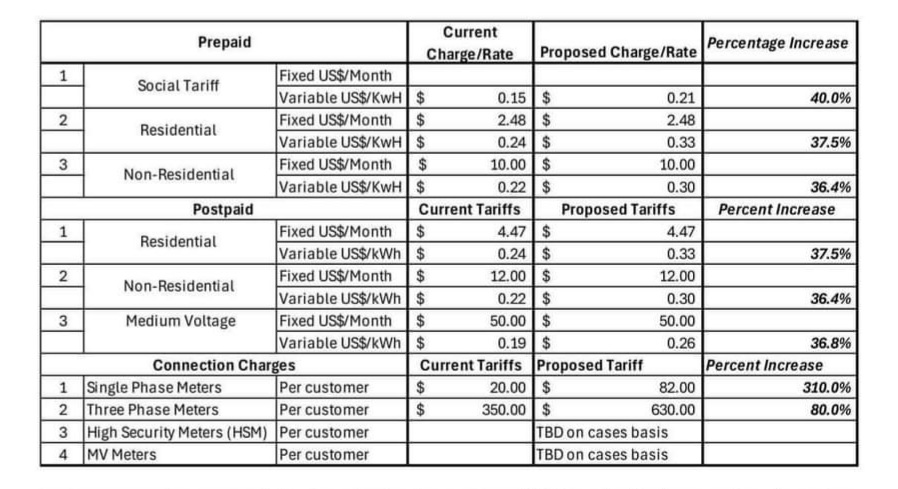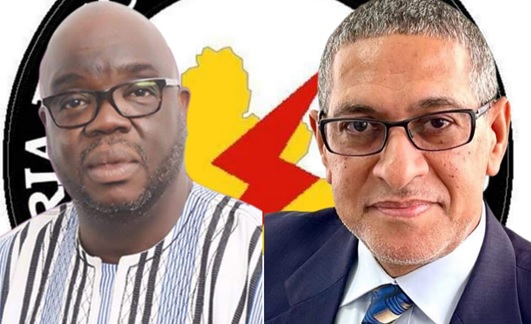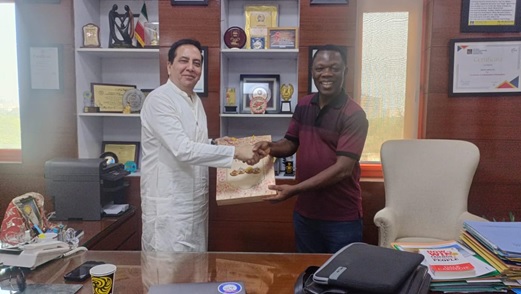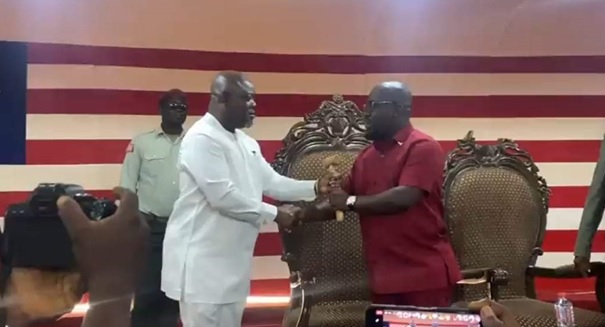MONROVIA, LIBERIA – Bomi County Senator Edwin Melvin Snowe, Jr., who chairs the Senate’s Hydrocarbon, Energy, and Environment Committee, has formally requested that the Liberia Electricity Corporation (LEC) release a comprehensive report on its proposed electricity tariff increase. In a letter addressed to LEC’s Chief Executive Officer Monie Ralph Captan on October 30, 2024, Senator Snowe expressed his frustration with LEC’s management for submitting a tariff increase proposal to the Liberia Electricity Regulatory Commission (LERC) without notifying the Senate’s oversight committee. He has given the LEC management ten working days to provide a full breakdown of the tariff changes, underscoring the committee’s role in maintaining transparency and accountability in public utility decisions.
Senator Snowe’s letter, titled “Request for Comprehensive Information on the Proposed Increment of Tariffs on Electricity,” underscores a series of concerns regarding the lack of prior consultation on the proposal. Snowe believes that any decision affecting Liberia’s electricity rates directly impacts the economy and the livelihood of its citizens, many of whom are already facing severe economic challenges. He criticized LEC’s disregard for involving the Senate committee, which is tasked with ensuring that energy sector policies align with the nation’s best interests. His letter calls attention to the necessity of thorough oversight, particularly when issues of public utility costs are concerned.
Below is the proposed tariff structure submitted by LEC:

The request for details follows an October 29, 2024, press release from LERC, which disclosed that LEC had submitted a new tariff proposal on October 21, 2024. This submission, which covers the period from January 1, 2025, through December 31, 2027, is LEC’s latest effort to secure a tariff adjustment. According to Section 8.1(2) of the 2015 Electricity Law of Liberia, no licensed provider may apply new tariffs without approval from the regulatory commission. This provision is intended to protect consumers from arbitrary rate hikes and to ensure that tariffs reflect actual service costs. With the current tariff structure set to expire at the end of 2024, the timing of LEC’s proposal has raised significant concerns among lawmakers and the public.
Senator Snowe further argued that a proposed increase in electricity rates is particularly “unhealthy” during a period of economic hardship. He noted that Liberian citizens are already grappling with rising living costs, and any adjustment to electricity tariffs could exacerbate financial stress on households and businesses alike. He asserted that the committee would need a complete report detailing the rationale and methodology behind the proposed rate increases. By demanding this information, Snowe seeks to evaluate whether the proposed tariffs align with the current economic realities facing Liberians and whether the adjustments are necessary.
In his letter, Snowe requested specific details on the LEC’s proposed tariff structure. This includes a comprehensive explanation of the methodology used to arrive at the proposed rates, the anticipated financial benefits for LEC, and projections of the impact on consumers. Snowe also requested that LEC provide details on how it plans to protect consumers, particularly low-income families, who may be disproportionately affected by any increase. The senator’s inquiry highlights his commitment to ensuring that decisions in the energy sector are made transparently and with the public’s welfare as a priority.
LERC, which is responsible for overseeing electricity tariffs in Liberia, has responded by requesting that LEC submit all supporting documents related to its proposed tariff structure. This step is in line with the regulatory framework set by the 2015 Electricity Law and the 2021 Multi-Year Tariff Methodology and Cost Reflective Electricity Price Determination Model. These regulations require that any tariff change undergoes a thorough review to determine its fairness and necessity. LERC’s engagement underscores the importance of regulatory oversight to prevent unregulated tariff increases that could exploit consumers.
To ensure public input and transparency in the review process, LERC has announced that it will conduct public hearings and stakeholder engagements. These forums will allow citizens, policymakers, civil society organizations, and other stakeholders to voice their concerns or support for the proposed tariff changes. Such outreach initiatives align with LERC’s commitment to safeguarding consumer interests and ensuring that licensed operators provide fair and quality services. The decision to involve the public underscores the need for inclusive dialogue on issues impacting everyday Liberians.
It can be recalled that in 2021, LERC approved tariffs for five customer categories, which include Social Customers, Prepaid Residential Customers, Postpaid Residential Customers, Prepaid Non-Residential Customers, and Postpaid Commercial Customers, along with Medium Voltage Customers. These tariffs took effect on January 1, 2022, and are set to expire on December 31, 2024. Currently, LEC’s services encompass Montserrado, Grand Cape Mount, Bomi, and Margibi counties. With the new tariffs set to take effect in January 2025, pending approval, LERC’s regulatory responsibilities are critical to ensuring that the new rates are equitable and justifiable.
Senator Snowe’s call for transparency reflects his commitment to the Senate’s role in scrutinizing public utility policies, especially when they impact citizens’ daily lives. By demanding clarity and a comprehensive review of the proposed tariffs, he emphasizes the importance of legislative oversight in maintaining a balanced energy sector. As public hearings and consultations approach, Snowe encourages citizens and stakeholders to actively participate in the discussion. His advocacy highlights the broader Senate effort to prioritize public welfare over corporate interests, especially as the new tariff framework is finalized.
Senator Snowe’s request for a detailed report from LEC marks a critical step in ensuring accountability within Liberia’s electricity sector. As LERC begins its review process, the Senate committee’s involvement will be instrumental in examining the rationale behind the proposed tariff changes. Snowe’s stance underscores the Senate’s ongoing commitment to transparency and fairness in public policy, as well as the importance of aligning energy sector decisions with the needs and economic challenges of Liberians.







